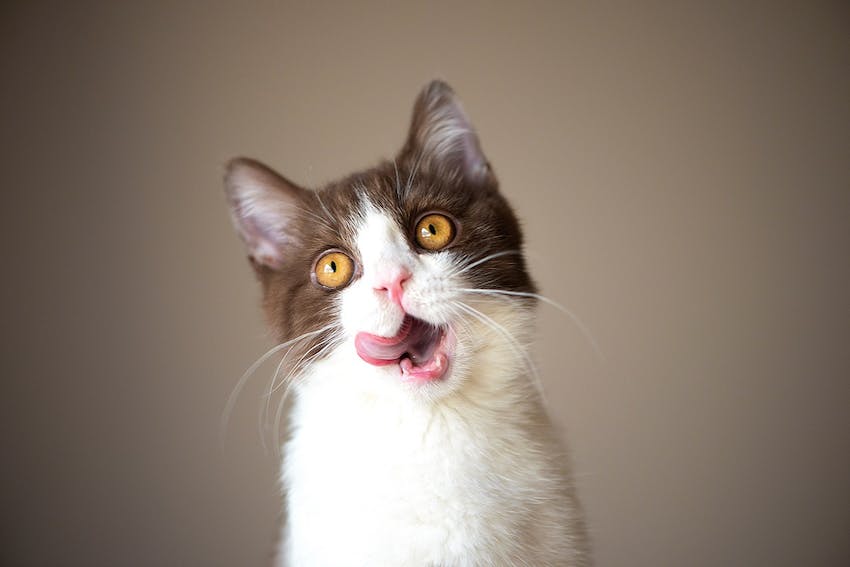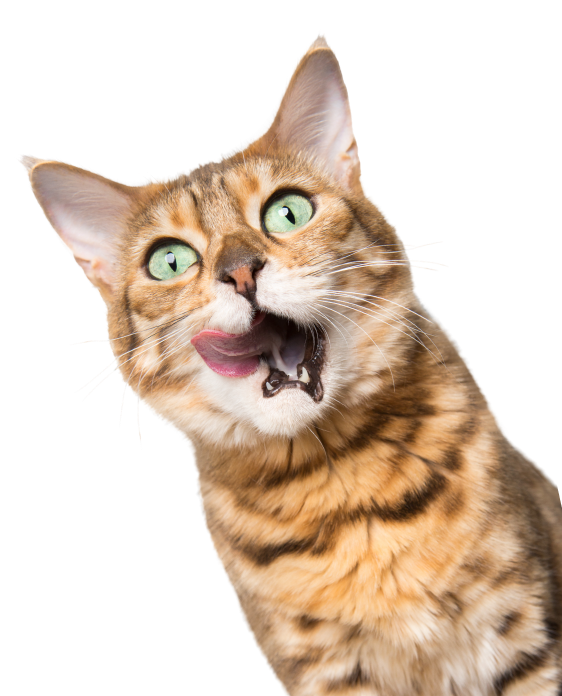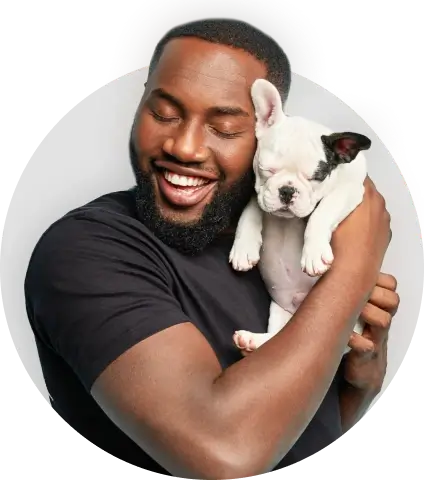Ready to help treat your pet to a healthy life?
Why Do Cats Yowl?
By : Kelli Rascoe | Updated Sep 26, 2024
Why Do Cats Yowl?
By: Kelli Rascoe / Published March 1, 2020
Your cat may communicate in a variety of ways. While some cats may choose to vocalize, others may use their body language to let you know how they feel. Naturally, a cat’s meow can help indicate something more may be going on with your furry friend. If you have a cat, you may find yourself asking, “Why do cats yowl?” Fortunately, we sat down with Trupanion veterinarian Dr. Sarah Nold to learn more about this particular cat behavior and what it may mean for your best friend.
Why do cats yowl?
Cats are unique. Also, they may like to communicate on their terms. Because of this, you may not know why your cat meows or chooses to yowl. For example, if your cat is yowling, they may be trying to communicate they're in distress. Nold breaks down some of the factors to explain why cats yowl.

6 reasons why cats yowl
Stress
Your cat may react to any stressor, anything from new food to environment. If you find yourself asking, “Why does my cat yowl?” consider any recent lifestyle changes. If there has been a change in their home or daily schedule, they may be trying to communicate that something is bothering them.
Separation anxiety
Pets are a part of the family. While you resume work, school, and daily activities that may affect your furry friends, and you may find that your cat yowls. Consider slowly introducing a change in your pet’s routine to help with separation anxiety.
Dementia
As your pet’s age, they may start to lose cognitive function. Although feline dementia can be rare, it can still affect a cat in a number of ways. This may mean they vocalize more to express how they’re feeling, and your cat might yowl. Consider talking with your veterinarian if you notice any abnormal changes in your furry friend.
Hyperthyroidism
A pet health condition can affect a cat in a variety of ways, including how they act. If your cat has a medical condition like hyperthyroidism, you may notice that your cat yowls. This may be a way for them to let you know that they may be in pain. If your pet shows any signs of distress, please seek the medical care of your veterinarian.
High blood pressure
The pet medical condition of hypertension may be a reason why your cat yowls. After all, yowling is a way for your pet to communicate with you. Consider a consultation with your veterinarian to help figure out the root of the problem for your best friend. For more on hypertension, click here.
Attention
Has your schedule changed, are you busy working, or not home? Your cat may simply be trying to get your attention. Consider pet enrichment and incorporate interactive toys to help ease your cat’s woes, or else you may notice that your cats yowl. Also, a pet-friendly home can help keep your cat occupied, happy, and entertained in a welcoming environment.

When to seek medical care for your furry friend
If your cat is showing any signs of pain, discomfort, or a change in their behavior you should seek the medical care of your veterinarian. When your cat yowls, this may indicate that it’s time to see the vet. They can help determine the source of your pet’s pain and recommend a treatment plan for your best friend.
Your cat may yowl for a number of reasons
All cats are different and may respond to change in different ways. You may find that your cat is stressed in their environment or may have a pet health condition, and so your cat yowls frequently. But, by notating your cat’s behavior and working with your veterinarian, your cat may start to feel back to normal in no time at all.
For more on cat behavior, read Are Cats Nocturnal? Cat Owner Questions Answered.
Pet Parenting is the official blog of Trupanion, a leader in the world of pet insurance for dogs and cats. Here you’ll find useful dog and cat care tips, interesting veterinary insights, and fun pet topics galore. While you’re browsing our pet blog, please note that the views expressed here are those of the individual authors and do not necessarily reflect those of Trupanion. Articles are reviewed by veterinarians for accuracy, but they are not a substitute for professional diagnosis and treatment. Always consult with your own pet’s veterinarian for advice.

We’re always ready to help
Our customer care team is available 24/7/365.
